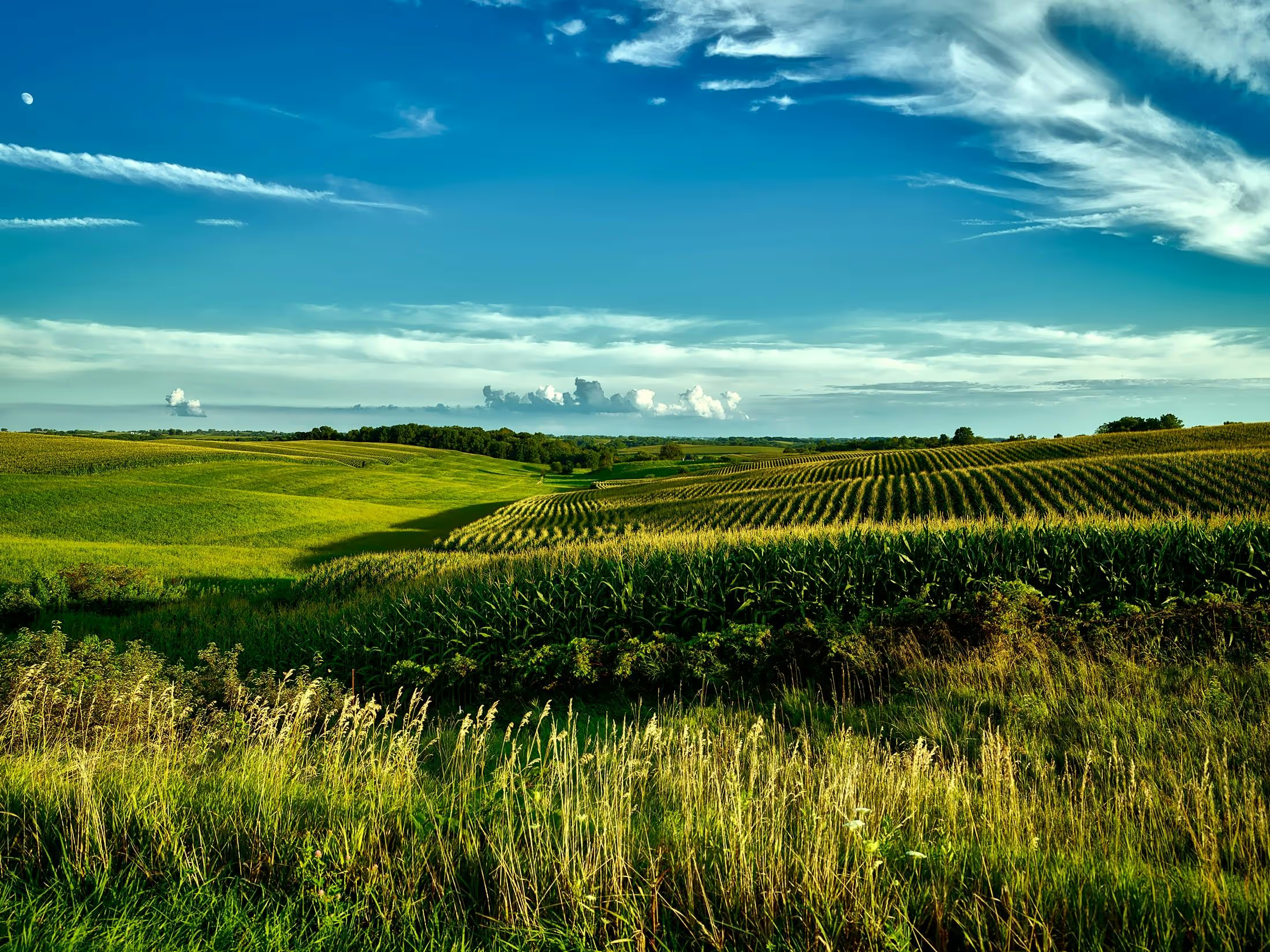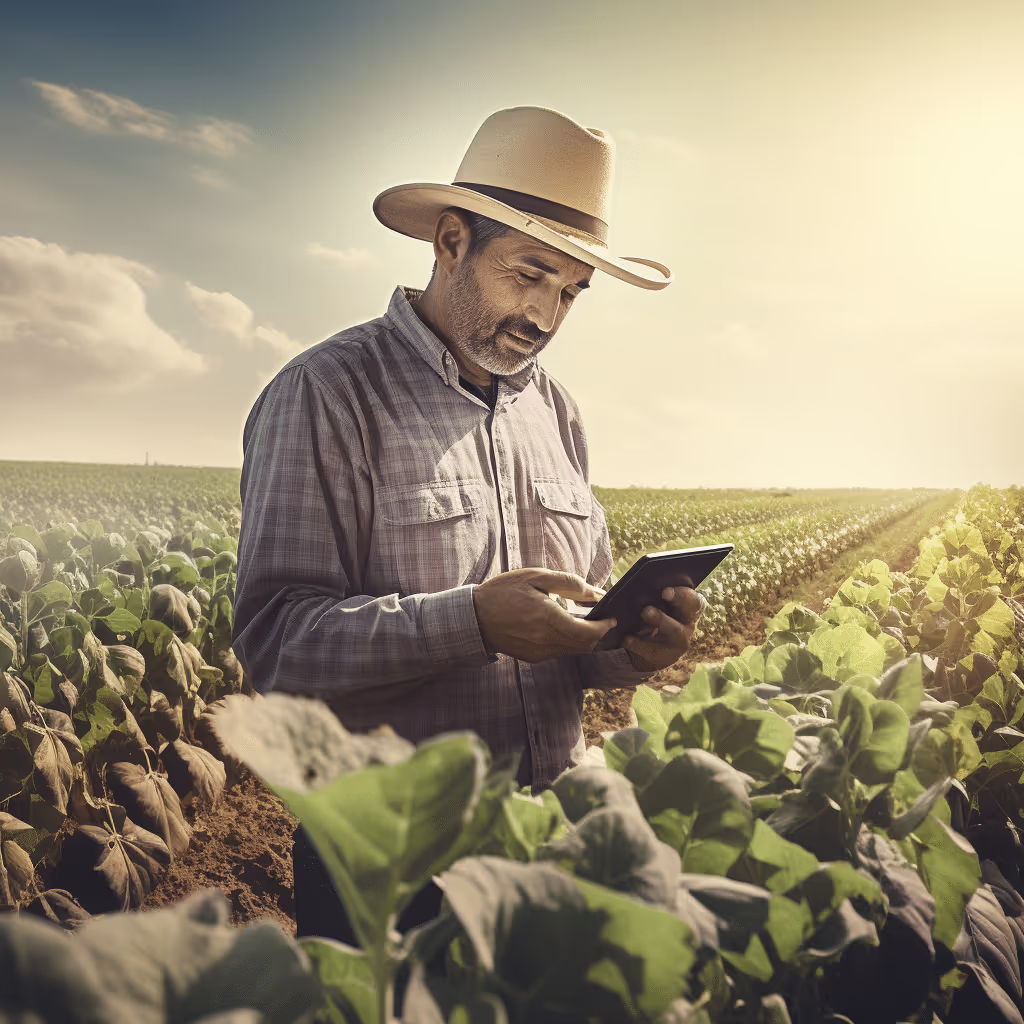Precision agriculture in South Africa
Explore the potential of precision agriculture in South Africa. Here's how new technologies optimise farming for higher yields and sustainability.

Precision agriculture is revolutionising farming practices worldwide, and South Africa is no exception. With its potential to optimise crop production, reduce environmental impact, and enhance overall efficiency, precision agriculture holds the key to sustainable and profitable farming in the country. Let’s delve into the impact of precision agriculture on reducing the agricultural carbon footprint and its potential benefits for both large-scale and smallholder farmers in South Africa.
What is precision agriculture and how does it work?
Precision agriculture, also known as precision farming or site-specific crop management, is an approach that utilises advanced technologies and data-driven techniques to optimise agricultural practices and maximise crop production while minimising resource waste and environmental impact. It involves the integration of various technologies to collect data, analyse it, and provide actionable insights for precise decision-making in farming operations:
- Remote sensing
- GPS (Global Positioning System)
- GIS (Geographic Information System)
- IoT (Internet of Things)
- Machine learning algorithms
The process of precision agriculture typically involves the following steps:
- Data Collection: Sensors, drones, satellites, and other devices are used to collect data on various parameters such as soil moisture, nutrient levels, crop health, temperature, and weather conditions. This data is collected at high spatial and temporal resolutions to capture field variability.
- Data Analysis: The collected data is analysed using advanced algorithms and machine learning techniques. This analysis helps identify patterns, correlations, and trends that provide valuable insights into crop performance, nutrient deficiencies, disease outbreaks, pest infestations, and other crucial factors affecting crop growth.
- Decision-Making: Based on the insights gained from data analysis, farmers can make informed decisions about resource allocation and management. These decisions may include: precise application offertilisers, pesticides, and water, determining optimal planting schedules, adjusting irrigation practices, and implementing targeted interventions to address specific crop issues.
- Prescription Mapping: The information gathered from data analysis is used to create prescription maps that guide farmers in implementing site-specific management strategies. These maps outline the recommended actions and inputs for different areas within a field, considering variations in soil quality, topography, and other factors.t
- Variable Rate Application: Precision agriculture enables farmers to apply inputs, such as fertilisers and pesticides, at variable rates across their fields based on the prescription maps. This ensures that resources are used optimally, reducing waste and minimising the risk of over-application or under-application.

What is an example of precision agriculture?
Popular use cases of precision agriculture include:
- Yield Monitoring: Precision agriculture allows farmers to monitor and analyse yield variations within their fields. This information helps identify areas of high and low productivity, enabling targeted interventions to improve overall yield.
- Soil Mapping: Soil sensors and remote sensing technologies provide detailed information about soil properties, including nutrient levels, pH, and organic matter content. This data assists in creating soil maps, which help farmers make informed decisions about fertilisation and soil managementpractices.
- Crop Health Monitoring: Remote sensing techniques, such as aerial imagery and satellite data, allow farmers to monitor crop health and detect early signs of diseases, nutrient deficiencies, or pest infestations. This helps in timely intervention and targeted application of treatments.
- Variable Rate Application: Precision agriculture enables farmers to apply inputs, such as fertilisers, irrigation, and pesticides, at variable rates based on field variability. This ensures that resources are used efficiently, reducing costs and environmental impact.
- Automated Irrigation: IoT-based sensors and weather data integration enable automated irrigation systems that adjust water application based on real-time soil moisture levels, crop water requirements, and weather conditions. This helps optimise water usage and prevent over-irrigation or under-irrigation.
- Crop Planning and Management: Precision agriculture tools provide insights into historical yield data, weather patterns, and soil characteristics, assisting farmers in making informed decisions about crop selection, planting schedules, and management practices.
The benefits of precision agriculture in South Africa
- Enhanced Crop Productivity: Precision agriculture allows farmers to optimise the use of resources such as fertilisers, water, and pesticides, leading to improved crop yields and productivity.
- Resource Efficiency: By precisely applying agricultural inputs based on data-driven insights, precision agriculture minimises resource wastage, reducing costs and environmental impact.
- Cost Savings: By optimising resource allocation and reducing input waste, precision agriculture helps farmers save money on fertilisers, pesticides, and other inputs, contributing to increased profitability.
- Environmental Sustainability: Precision agriculture reduces the use of chemicals, minimises soil erosion, and lowers greenhouse gas emissions, promoting more regenerative farming practices and reducing the agricultural carbon footprint.
- Improved Decision-Making: Real-time data collection and analysis enable farmers to make more informed and timely decisions regarding crop management, disease detection, irrigation, and other crucial aspects, leading to better outcomes.
- Targeted Interventions: Precision agriculture enables farmers to identify and address specific issues affecting their crops, such as pests, diseases, or nutrient deficiencies, minimising crop losses and maximising overall production.
- Increased Efficiency: Automation and technology integration streamline farming operations, reducing manual labor requirements, and improving overall operational efficiency.
- Customisation and Adaptability: Precision agriculture allows farmers to tailor their approach to each field’s unique characteristics, considering factors like soil type, topography, and historical yield data, resulting in customised and optimised farming practices.
- Data-Driven Insights: Precision agriculture generates a wealth of data, which can be analysed to gain insights into crop performance, soil conditions, and other key parameters, facilitating traceability, continuous improvement and informed decision-making.
Reducing the agricultural carbon footprint through precision agriculture
One of the pressing challenges faced by the agricultural sector globally is the need to reduce its carbon footprint. Agriculture is a significant contributor to greenhouse gas emissions, primarily through the use of fertilisers, fuel for machinery, and livestock production. However, precision agriculture offers innovative solutions to address this issue.
By leveraging technology and data analysis, precision agriculture enables farmers to optimise the use of resources, including fertilisers and pesticides. With accurate mapping of fields using GPS technology, farmers can apply inputs precisely where they are needed, minimising waste and reducing the overall environmental impact. Furthermore, the integration of remote sensing technology and real-time data allows for targeted interventions, such as identifying and treating crop diseases or pests, leading to more efficient resource allocation and reduced chemical usage.
Financial benefits for conventional large-scale food production
Precision agriculture has already proven to be beneficial for large-scale food production around the world, and South Africa is embracing these practices to remain competitive in the global agricultural market. With the pressure to produce profitably at export parity prices, South African farmers need to leverage the latest technology available, including precision agriculture, to sustain profitable production.
The use of precision agriculture practices, such as variable rate application and real-time data analysis, enables farmers to optimise crop yields while reducing input costs. By precisely applying nutrients, water, and other agricultural inputs, farmers can achieve higher productivity, leading to increased profitability. Moreover, the reduction in resource waste and more efficient management of crops contribute to overall cost savings.

Challenges for smallholder farmers and food security
While precision agriculture has demonstrated financial benefits for large-scale food production, its impact on smallholder farmers and food security at this level is uncertain. Smallholder farmers often face various challenges, including limited access to resources, lack of infrastructure, and limited technological capabilities. Implementing precision agriculture practices may require significant investments in technology, which can be a barrier for smallholders.
Additionally, smallholder farmers play a crucial role in ensuring food security in South Africa, as they contribute significantly to local food production and livelihoods. It is essential to consider the specific needs and limitations of smallholder farmers when promoting precision agriculture to ensure that they can also benefit from its potential advantages. This could involve providing training, access to affordable technology, and support in data management and analysis.
Check out RegenZ’s package for smallholder farmers.
You may also be interested in: Unlocking the potential of smallholder farming in South Africa.
Enabling precision agriculture in South Africa
South Africa is well-equipped to embrace precision agriculture with its access to advanced technologies and data collection methods. From satellite geomapping to drones and sensors, farmers have a range of tools at their disposal to gather real-time information about their fields. Advanced sensors and monitoring equipment enable continuous crop monitoring, leading to more strategic decision-making and increased productivity.
Precision agriculture holds immense promise for South Africa’s agricultural sector, offering opportunities to reduce the agricultural carbon footprint, increase financial benefits for large-scale food production, and promote sustainable and efficient farming practices. While challenges remain for smallholder farmers, efforts should be made to ensure that precision agriculture is inclusive and accessible to all farmers, regardless of scale. By embracing precision agriculture and integrating it into broader agricultural development strategies, South Africa can position itself as a leader in sustainable and regenerative farming practices while ensuring food security and a prosperous future for its agricultural sector.

About the Author

Alex Platt
Alex is Business Development Manager at RegenZ. He's inspired by the potential of regenerative farming and takes a special interest in the technology and products that are moving agriculture in a more sustainable direction.
.png)



.avif)

